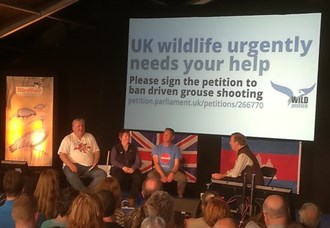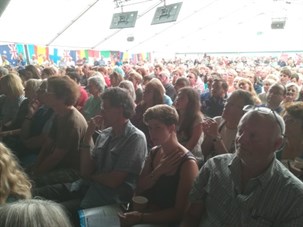On 12 September Defra launched a 12 week online public survey to gather evidence on the control that stakeholders consider is required under the General Licences. This forms part of a planned ongoing review of General Licences to manage wild birds in England.
In the announcement, Environment Secretary, Theresa Villiers, explained that the aim of the review is to ensure the licensing system is robust, striking the right balance between the protection of wild birds and the activities people such as landowners and farmers need to carry out for specific purposes, such as protecting livestock or crops and for conservation purposes.
Defra is leading this review in close partnership with Natural England.
The survey, which will run for 12 weeks, closes on 5 December 2019, is just one strand of the review. In parallel with the survey, Defra and Natural England will be conducting a series of workshops with interested groups in the autumn, covering particular topics such as activity on protected sites.
The survey will focus on the purposes covered by these three General Licences. All information submitted will be considered alongside evidence received during Defra’s shorter call for evidence held in spring 2019, which highlighted some areas where evidence is currently lacking. This survey therefore builds on that call for evidence, asking for more specific information to feed into the development of a future licensing system.
The survey asks what General Licences for the following purposes should cover (and should not cover) and asks for supporting evidence:
- To kill or take wild birds to conserve wild birds and to conserve flora and fauna;
- To kill or take wild birds to preserve public health or public safety;
- To kill or take wild birds to prevent serious damage to livestock, foodstuffs for livestock, crops, vegetables, fruit, growing timber, fisheries or inland waters.
The review was announced earlier this year when Defra issued the three new short-term licences to control wild birds to conserve wild birds and flora or fauna (GL34); preserve public health or public safety (GL35); and prevent serious damage to livestock, foodstuffs for livestock, crops, vegetables, fruit, growing timber, fisheries or inland waters (GL36).
For background on this whole saga, consult the review posted on Pest dated 15 July 2019.
Environment Secretary Theresa Villiers, who has picked up this pledge from then Environment Secretary Michael Gove, said: “I completely understand the scale of interest in this important issue and the real concern of users who need to have confidence in the licensing system.
“I want to encourage users and other interested parties to take part in the process. This will help us ensure our licences strike the right balance between the protection of wild birds and the important actions users need to take to protect livestock or crops, and for conservation purposes.”
Natural England’s interim chief executive Marian Spain said: “Our aim has always been to ensure that there is a robust licensing system in place which takes into account the needs of people and wildlife.
“We look forward to continuing to work closely with Defra and with stakeholders and users on the ground to help achieve this.”
Closer to home, Ian Andrew, chief executive of the British Pest Control Association (BPCA) said: “We encourage all BPCA members to get involved in the survey and submit a response, even if you provided evidence back in the spring. General licences are an important tool for pest management professionals and help them protect public health and safety. Make sure you have your say and help protect your sector.”
How this all started
This whole saga was instigated by Wild Justice, a not-for-profit company set up on 13 February 2019 by Chris Packham, author and campaigner, Dr Mark Avery, researcher and wildlife campaigner and Dr Ruth Tingay. Their stated objective is to take legal cases on behalf of wildlife against public bodies where they are failing to protect species and/or habitats.
Wild Justice has gone on to campaign on the persecution of hen harriers on grouse moors, intensive grouse shooting and the release of captive-bred non-native game birds.
The founders were originally billed to be taking part in a Q&A session at the Game Fair in late July but their session was cancelled. So, to their credit, a similar event was planned to be held at the Bird Fair on Saturday 17 August when it was billed that the debate would cover General Licences.
 |
 |
The three Wild Justice leaders, seen above (left to right) Dr Mark Avery, Dr Ruth Tingay and Chris Packham were interviewed by Charlie Jacoby, presenter of YouTube’s Fieldsports Channel, in the totally packed main event marque .
The debate did not cover the General Licences activities, but in a post presentation interview, Chris Packham made their original objectives quite clear. He said: “We were never about restricting licences where human health or economic issues were an issue. All we wanted Natural England to do was introduce a system of licensing whereby the applicants could satisfy them that they had tried everything before killing those birds.”
His interview by Charlie Jacoby is well worth listening to. It can be heard here, the General Licence section begins after 1.50 minutes.

